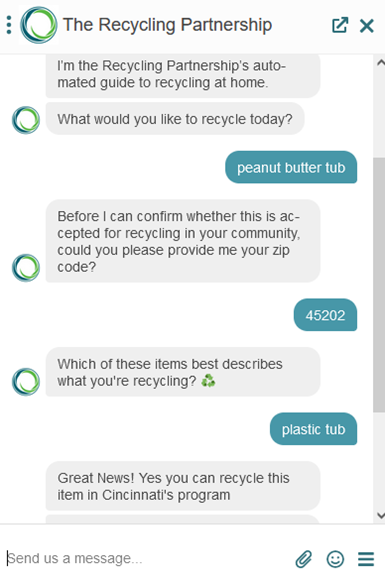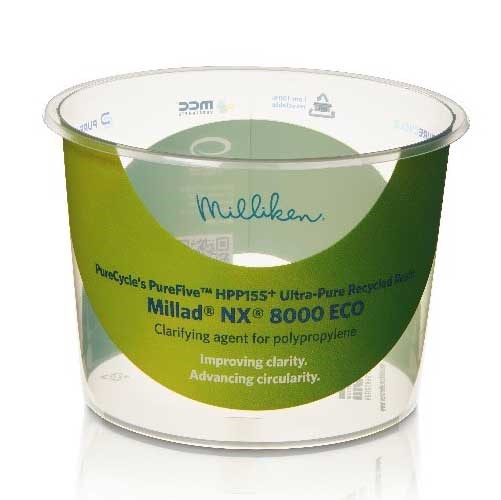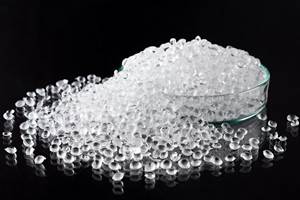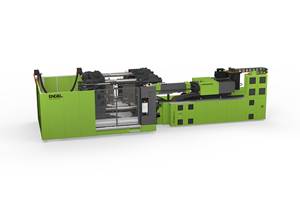Meeting the Social Challenges of Changing an Industry
At K 2022, Milliken highlighted its various sustainability collaborations in addition to technological achievements.
A cornucopia of technological innovations was on display at the recent K Show in Germany, from a three-story polycondensation plant to a hand crank-powered injection molding machine. But adapting the plastic industry to meet contemporary challenges requires social innovation as well as technological.
Many of the collaborations described at K included the Milliken company. “We are more than just additives. We make both technical solutions and partnerships for better business,” said Diedre Sandrock, director of sustainability and innovation at Milliken.
Sustainability is not a new concept at Milliken: as Sandrock pointed out, the company’s first recycling policy was drafted in 1901. When Halsey Cook became CEO in 2018, he revised Milliken’s mission statement to emphasize sustainability and cooperation: “Together, we strive to positively impact the world around us for generations to come.”
So, beyond sounding nice, how does the focus of this statement differentiate, in other words what concrete steps could we expect to see from a company that makes such a claim? Milliken representatives spent much of the week offering various answers to this question.
A new, more responsible management system for plastics requires social infrastructure at all points in the value stream. The need might be most evident at the collection phase. Consumers are faced with a collection system whose rules vary wildly from one locality to another, and many are skeptical of recycling due to the societal backlash over plastic waste.
“Oregon and California are trying to standardize collection, this needs to happen in each state and country,” said Scott Trenor, principal scientist at Milliken. The Plastics Pact has called for the elimination of “problematic materials”. Trenor said these can include materials that are completely recyclable, such as polystyrene, but are problematic for other reasons such as low yield and sorting difficulty.

With the recycling partnership chat box, anyone can find out what items are accepted by their local recovery facility.
In the meantime, a chat bot offered by The Recycling Partnership, of which Milliken is a funding member, helps consumers determine what is recyclable in their community.
Another effort to use information to improve recycling is the HolyGrail 2.0 initiative, driven by the Alliance to End Plastic Waste and aimed at demonstrating the feasibility of covering packaging with digital watermarks. The watermarks are imperceptible to human eyes but allow automatic scanning systems to know the exact material of each package.
At a joint press conference, Milliken and Purecycle offered updates on their collaboration. Purecycle has a low-heat, catalyst-free process for washing additives and contaminants away from PP to prepare it for reprocessing. Milliken announced that it will be marketing a complementary PP concentrate based on recycled resin carrier. “If you put an additive package into a fully recycled product, you’re always gonna have 3% that comes from fossil-based PP,” explained Purecycle CEO Dustin Olson. “But with this solution, because our product is 100% recycled, all of the sudden we can close the chain on full circularity.”

PP container made with Millad NX 8000 ECO clarifying agent.
Photo Credit: Milliken
Milliken additives can give materials properties that facilitate recycling, enabling cleaner streams with better processability and toughness. An example is the clear plastic container used by Ferrero Rocher chocolates. The company has a brand ambition to be 100% recyclable, biodegradable or reusable. This meant moving away from PS, but the company was reluctant to change the appearance of their widely recognizable product. Using Milliken’s PP clarifying Millad additive, they were able to switch to PP without changing their brand aesthetics.
Technology can ease the transition for brand owners, improve traceability and sorting, and make plastic materials themselves easier to reprocesses. But part of the circularity chain is with consumers, who must not only understand what to place in the bin, but be able to trust that materials will be handled responsibly from there.
“We in the chemical sector and plastic industry need to help inform consumers from a science-based perspective. Life cycle analysis and net zero carbon targets are a big part of that,” said Sandrock.
Related Content
Ultra-Compact PET Machine For 12 L in Two Cavities
New size of all-electric reheat stretch-blow machine for large PET bottles debuted from 1Blow at K 2022. It retains the company’s signature small footprint and energy-sparing features.
Read MoreK 2022 Additives & Materials: Sustainability in the Lead
Nearly all of the new additives highlighted at the big show are aimed at enhancing recyclability of commodity resins and some volume engineering resins such as nylon and PC. A few new materials, on which we had not previously reported, also surfaced at K 2022.
Read MoreEnergy Efficiency in Focus at K 2022
As much as cycle time, kWh/kg was an oft-cited metric by injection molding machine suppliers at October’s big show.
Read MoreExhibitor Registration Opens for K 2025
Exhibitor registration for the triennial event, which will take place Oct. 8-15, 2025, in Düsseldorf, Germany, is open with a reservation deadline of May 31, 2024.
Read MoreRead Next
Making the Circular Economy a Reality
Driven by brand owner demands and new worldwide legislation, the entire supply chain is working toward the shift to circularity, with some evidence the circular economy has already begun.
Read MoreBeyond Prototypes: 8 Ways the Plastics Industry Is Using 3D Printing
Plastics processors are finding applications for 3D printing around the plant and across the supply chain. Here are 8 examples to look for at NPE2024.
Read More
























